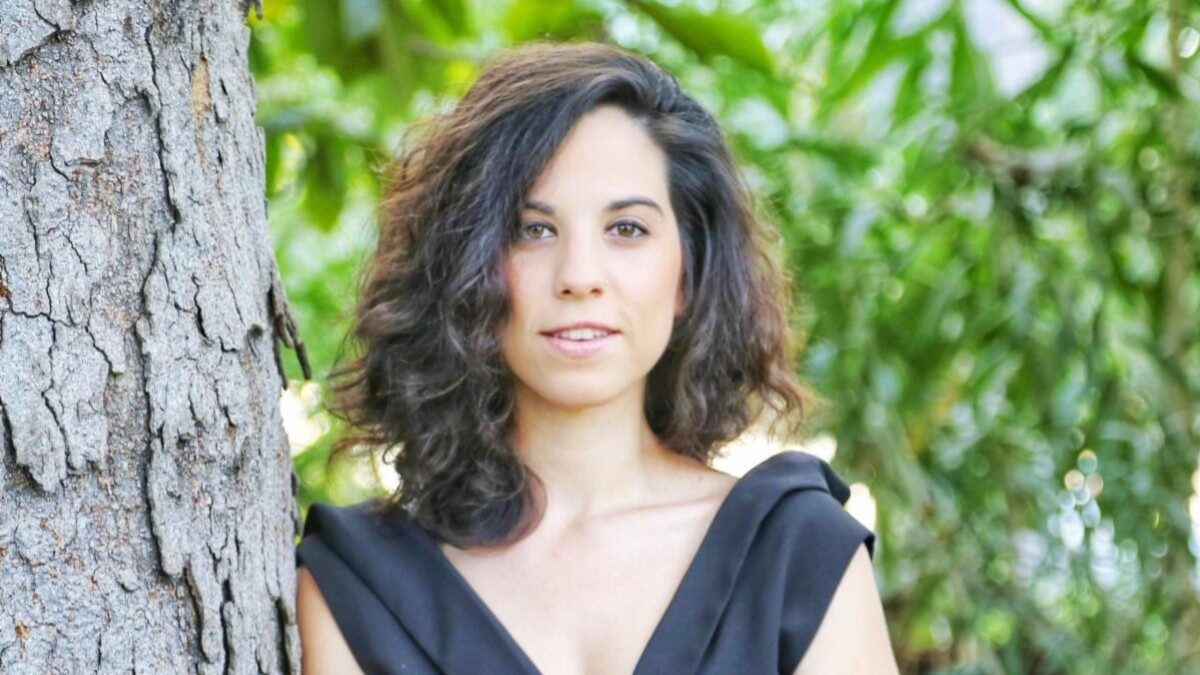
When Carla Roda studied for her bachelor’s degree, she was on the path to being a producer. Although she was good at managing people, she quickly realized being a producer required more. She went on to produce student films and also had the opportunity to edit them. That’s when she realized editing was what she wanted to do.
“I had discovered the pure fun of editing. So, I taught myself Apple Final Cut 7 through YouTube videos. I then did the same when Adobe Premier became available. But mostly my training was by practicing over and over with different projects and each time discovering new elements to craft my editing. Adding to that is my experience in storytelling. I did some courses in screenwriting as well as some workshops in story editing,” says Carla Roda.
indieactivity: Detail the day-to-day process on a project working with your closest collaborator?
Carla Roda (CR): When I started editing I took every and any opportunity that came to me. It didn’t really matter the pay, I just really wanted to keep practicing my editing in different genres.
After 2 years of “practicing,” I started to really hone in my craft, my style of editing, and really what I was able to bring as Carla Roda, the editor. In 2017, I started to see very clearly that documentary was my real passion so I took mostly non-fiction projects. Nowadays that’s mostly the genre that I edit.
Documentary editing is very rewarding. It’s beautiful to be able to tell so many stories. Each project is different and before accepting one I really pay attention to the message behind the film. That’s very important to me in deciding which project I will edit. I also think it’s very important to make sure that the editor and director are in sync on what is the final vision for the project, otherwise, it will be very difficult to collaborate with someone.
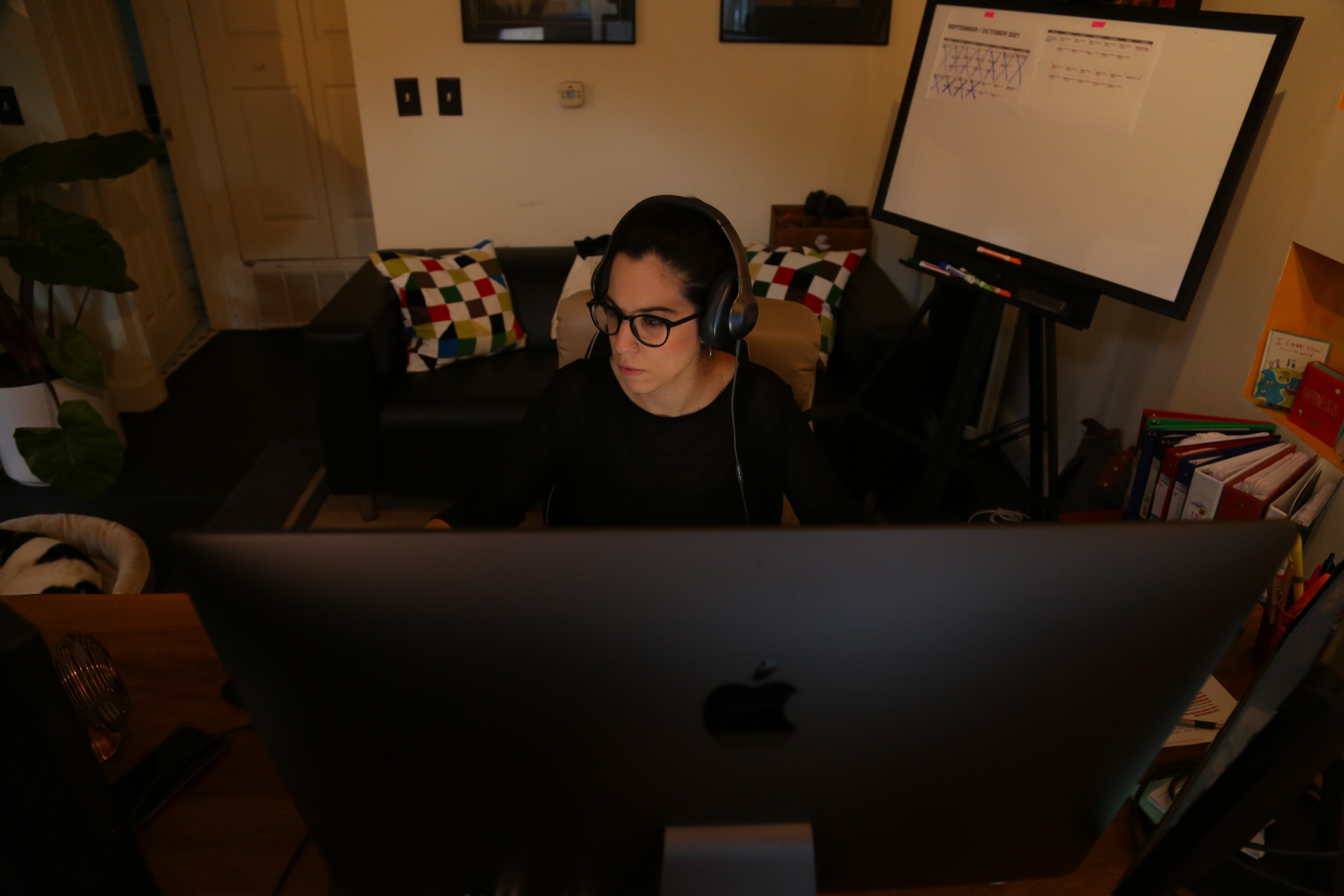
THE INTRODUCTION
What were your tasks on “A Strange Calm, 2020″?
Carla Roda (CR): Film editing is one of the final steps for a movie. I feel that my job is crucial for the success of the film. Especially in documentary editing as we are practically writers. We don’t have scripts, only footage and we have to craft the story by reviewing hours and hours of footage and making sure that the intended message is clear while respecting each speaker’s point of view.
What is your personal philosophy on editing?
Carla Roda (CR): For me, editing is like being a magician. Nowadays we are able to do so many tricks to be able to tell stories in whatever way we want. One scene can give you so many different emotions by changing different elements in each edit.
I feel we have an invisible power that not many people are aware of. That being said, my philosophy or my “rules” when editing non-fiction is to always stay to the truth of each speaker and never change the truth just for entertainment’s sake
What would your role be collaborating with D. W. Griffith, Orson Welles, Alfred Hitchcock, or John Ford?
Carla Roda (CR): I would be sitting in the editing room for all of their films learning from each one of them.
Editing has come a long way since D. W. Griffith’s Birth of a Nation (1915). Today it’s still driven by technology, take us through a short history of the industry progress?
Carla Roda (CR): Right now we are able to do so many things digitally that it’s even hard to keep up every time something new comes around. In my 10 years as a professional editor, I have seen so much progress that I’m really excited to see what else will come.
At the same time, I’m scared… I have always tried to make people understand that good or bad editing doesn’t come from whatever program you choose if not from the person managing the program. Their creativity in deciding which shot comes first and when or where to cut each scene it’s the ultimate prize.
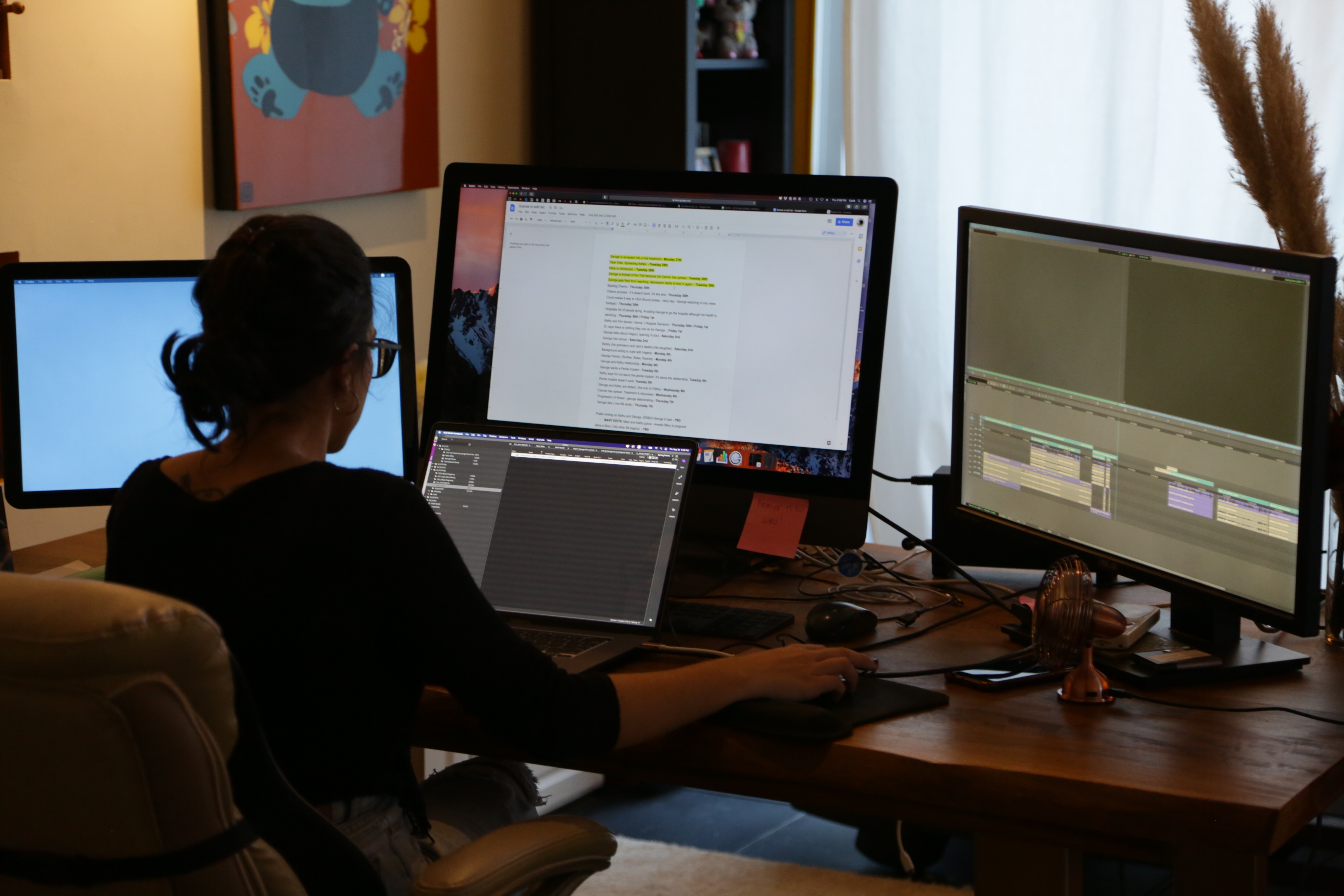
FILMMAKING ADVICE
Indie films run low-end editing tools like Adobe Premier. Introduce us to more tools within this sphere?
Carla Roda (CR): Although tools like Adobe Premier or even AVID are perfect for low-budget editing, I feel the key is not the program. It is how creative as an editor you can be to make something look “expensive”. As I said, editors are like magicians so depending on how you use your magic, things can look one way or another. I love playing with sound editing as well, adding foley sounds, specific music will make something feel very different. I normally inspire myself by other movies’ soundtracks to be able to find the right mood.
What’s your experience working on story, screenplay, production, premiere, and marketing in indie films?
CR: I was lucky my University had an amazing bachelor’s program for Cinema and TV where I learned the filmmaking process. I wrote scripts, I produced, directed, and edited films and I managed to make it into festivals and promote the projects using social media.
Afterward, when I “made it” into the professional world I have been able to collaborate on different projects in different stages that have given me the opportunity to understand more in-depth each stage of filmmaking.
Indie filmmaking is a model of zero or small budget. How do you get a film to look very great with such a budget?
CR: It’s all about the willingness to make it look great and using all the creative tools you can think of to make it look like a million-dollar budget. But of course, it’s not just the editor’s job if not also all the other departments that help to finish the movie in post-production.
I think that’s why it’s so important to always have a tight collaboration with sound editors, colorists, music composers, and visual effects artists, among others. Filmmaking has to always be a collaboration process, if not it’s very hard to succeed.
Do you always have to work with a crew? Or do you go solo? Where do you jump in during most filmmaking pipeline?
CR: As an editor, they will normally call us when they either are in pre-production or production. Sometimes it’s someone who has already shot the project and they are now starting post-production. I personally prefer to be involved in the project from the beginning so we don’t have surprises while editing.
Depending on the project and the budget, I have more or fewer people helping me. But I’m proud to say that a lot of the projects I have recently completed have been very successful, thanks to an amazing team of people whom they each brought their talent to make the projects look amazing.
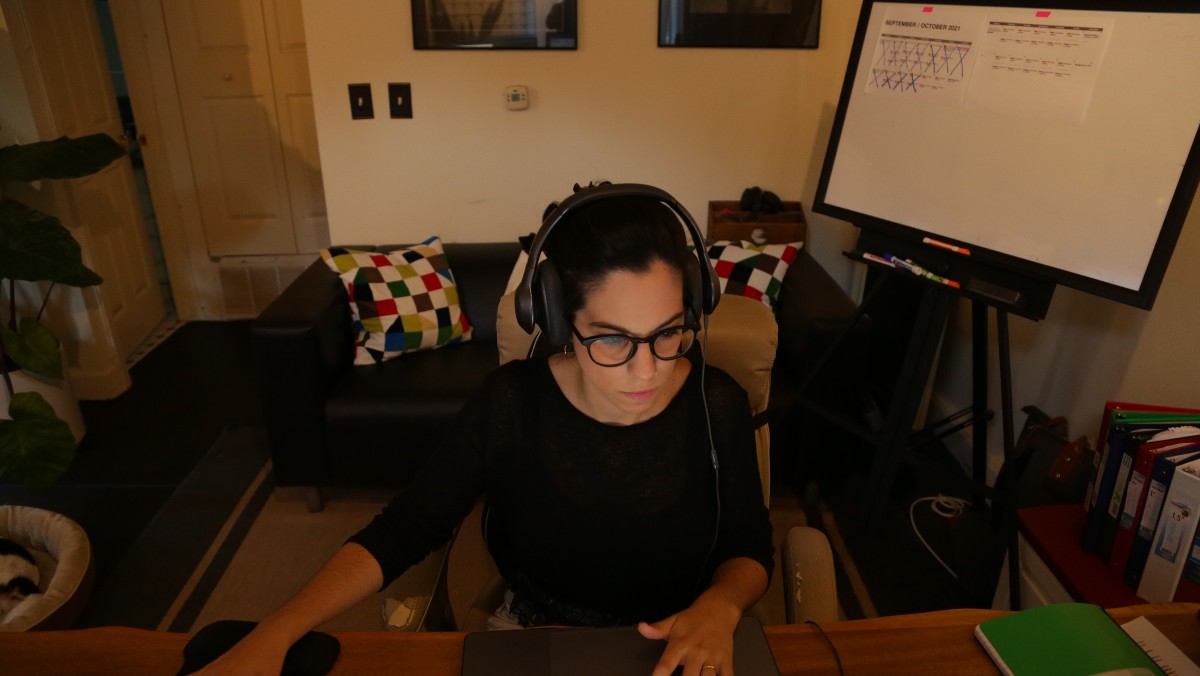
FILMMAKING EXPERIENCE
Describe your most recent work, take us through post-production?
CR: One of the things I love the most about editing documentaries is the ability to be involved in the story-making of the movie. We are writers of the stories and that’s what is so exciting. We combine the creative and the technical aspect of filmmaking in post-production and that’s why it is so rewarding in the end.
In the last few years, I finished the documentary “The Green Wave ” directed by Guido Vergwegyn, which won Best Feature Documentary at the Los Angeles Film Festival and was recently bought by Screen Media. I also edited the short documentary “Vote Neil’ directed by Honora Talbott ‘ that was at Tribeca Film Festival 2020 Official Selection in Documentary Shorts.
It was also licensed by NBC News and Meet The Press, Revry, played at AFI Fest, Hot Springs Documentary Fest, HollyShorts, Cinequest, Indy Shorts, American Documentary Film Fest, Original Thinkers, and won Best Shout (LGBTQ) Short at Sidewalk Film Festival.
I also edited the feature documentary “We Stand Corrected” directed by Richie Elson, an alternative narrative to Ben Stiller’s Showtime limited series, “Escape at Dannemora” as well for the feature documentary “Our Quinceañera” directed by Fanny Veliz Grande which won the Audience Award for Best Documentary at The Bentonville Film Festival and Audience Award for Best Documentary at the Panamanian International Film Festival in Los Angeles.
I recently also edited the feature film “6 Feet Apart” directed by Jessa Zarubica that will be premiering soon as well for the feature film “Skinny Dipping” a romantic comedy starring Roberto Manrique and Gisella Abroumoud, big influencers in South America, along with Isra De Corcho and Sara Nuñezbeing distributed by Principal Media.
What was the first project out of the gate?
CR: My first successful project or the one that started to give me a name was my movie “Camila” which I wrote, directed, produced, and edited. I was able to tell a very personal story in a very artistic way. It was an Official Selection in a lot of festivals and won some of them.
I feel Camila was my introduction to the film world. And although it was a fiction story, and I ended up doing much more non-fiction, I feel that this project helped me craft my storytelling skills
You must don several hats on low-medium budget projects, what measure of input: intellect, effort, tenacity, skill, does it take to put out all these qualities to get a project done?
CR: When I’m on a project, whatever its budget, I invest 100% of myself. When filmmakers approach me with; “ a limited budget because it’s a personal story”, I commit to it the moment I accept it. So, it becomes a personal project and I always give input in every aspect I can. The end goal for filmmakers on a film project remains the same, it is to make the best film we can for the audience to enjoy it.
What about the independent filmmaking business do you struggle with?
CR: I really enjoy the independent filmmaking business as that’s how I started. I just wish filmmakers will have more resources to be able to complete their movies. There are so many good stories waiting to be given an opportunity. It’s sad that some will never see the light of day because there is not enough help to get them off the shelves.
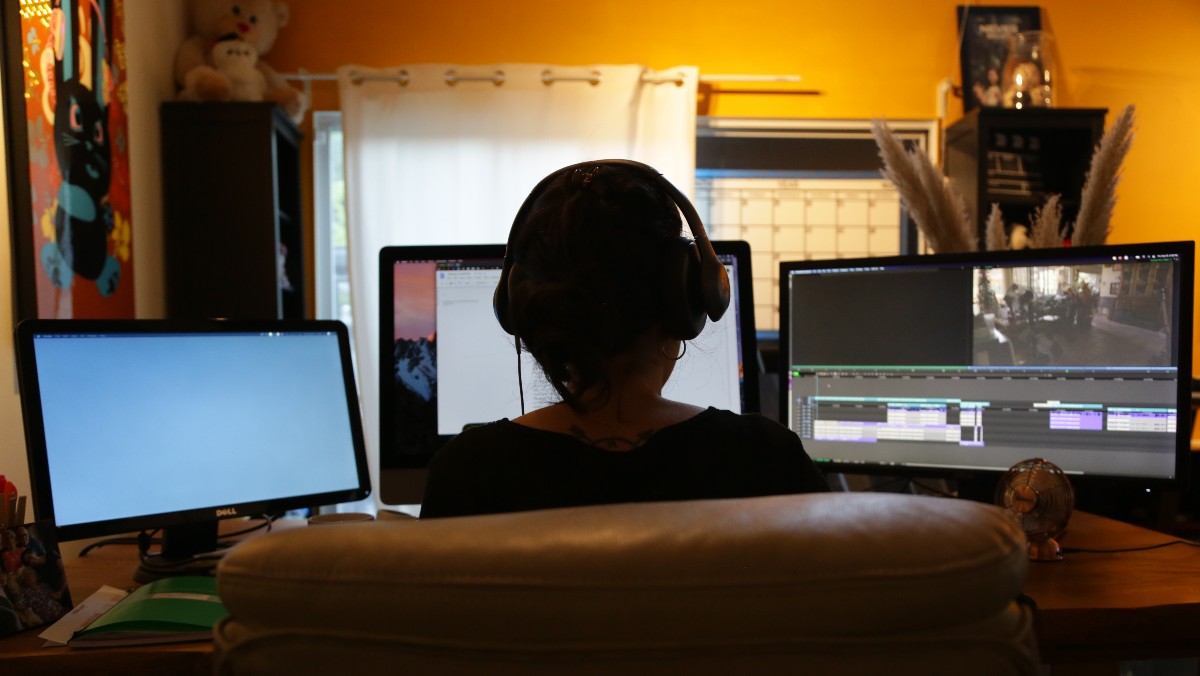
LOOKING TO THE FUTURE
What are your future goals?
CR: My future goals are to be able to fully establish myself as a female editor and director – an avenue I want to explore. I have a script I have been writing for the last 10 years which is ready to go into film. I’m looking for investors willing to give me the opportunity to share the story with the world. The story invites you to meditate on the importance of self-care through highly emotional situations as such a movie is very necessary today.
Tell us about what you think editors in independent filmmaker needs in today’s world of filmmaking?
CR: We just need support. I’m lucky enough to be a part of the Schmeer Fellowship program, a member of the Alliance of Documentary Editors, and a member of the BIPOC editors. FInally as a collaborator at the Chicana Director’s Initiative.
But we still need support not just as editors or directors but also as artists. We need open-minded people to believe in our work and give us more opportunities. We need new voices to be able to equally have a seat at the table in each aspect of filmmaking.
What else have you got in the works?
CR: Firstly, I’m editing a docu-series for a streaming platform, and secondly, a feature documentary for an indie director supported by Film Independent (a non-profit arts organization that champions the independent filmmaker). As a director, I’m working to bring into production my feature film Let Go.
Tell us what you think of the interview with Carla Roda. What do you think of it? What ideas did you get? Do you have any suggestions? Or did it help you? Let’s have your comments below and/or on Facebook or Instagram! Or join me on Twitter.
Follow Carla Roda on Social Media
Website
IMDB
LinkedIn
Twitter
Instagram
Richard Green Documentary, ‘I Know Catherine, The Log Lady’: Premiere in NYC, LA May 9th
Lynchian Doc I Know Catherine, The Log Lady Makes Hollywood Premiere 4/17, Rollout to Follow
In Camera by Naqqash Khlalid Launch on VOD April 29
Naqqash Khlalid’s Directs Nabhan Rizwan. In Camera stars an EE BAFTA Rising Star Award Nominee.
2025 Philip K. Dick Sci-Fi Film Festival Award Winners Announced
Vanessa Ly’s Memories of the Future Awarded Best PKD Feature
Dreaming of You by Jack McCafferty Debuts VOD & DVD for April Release
Freestyle Acquires “Dreaming of You” for April 15th Release
Hello Stranger by Paul Raschid set for London Games Festival & BIFFF
The film Is set for an April 10th Premiere at The Genesis Cinema in London (LGF) and BIFFF
Daydreamers Official Trailer by Timothy Linh Bui: Released by Dark Star Pictures
Daydreamers Vietnamese Vampire Thriller – May 2nd release









